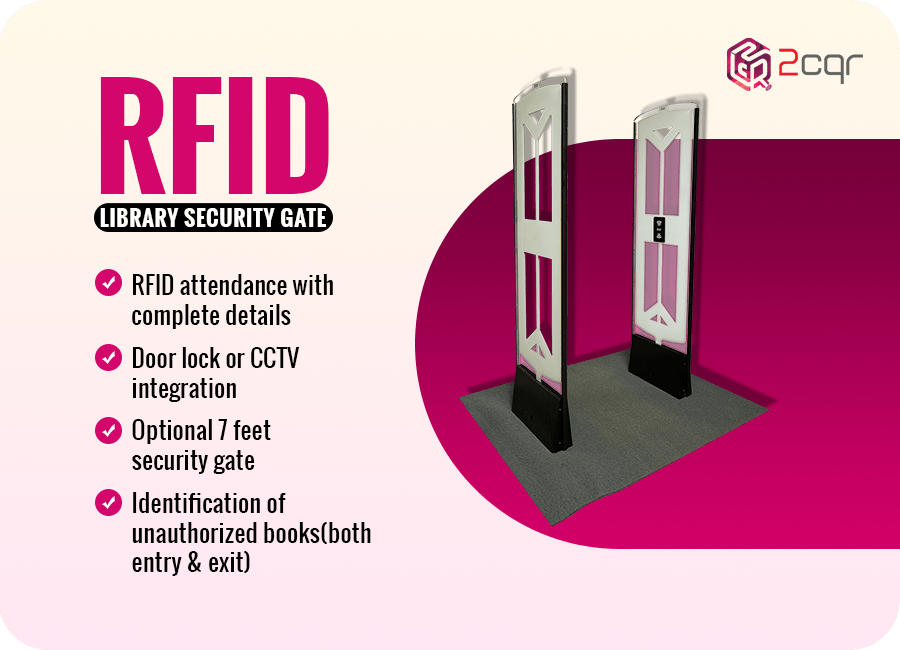
Automation (RFID library solutions) has become a driving force across various industries, and libraries are no exception. In fact, RFID (Radio-Frequency Identification) technology has emerged as a game-changer in library management, propelling libraries into a new era of efficiency and effectiveness.
Libraries worldwide are embracing RFID solutions not only for their ability to streamline operations but also for the wealth of advantages they bring. Let’s delve into the numerous benefits of implementing RFID technology in libraries.
1. Improves Staff Productivity
RFID solutions take the reins of intensive tasks, such as reshelving returned books and monitoring unauthorized access. These automated systems eliminate the need for additional human resources and significantly reduce the likelihood of errors.
As a result, library staff can redirect their energy toward more productive endeavors, propelling the library’s growth while fostering a happier, more engaged workforce.
2. Increases Subscription Rates
RFID systems empower libraries with valuable data analytics and auditing capabilities. This insight into user behaviour, interests, and demands extends beyond resource collections to encompass technological preferences.
Armed with this information, libraries can enhance their book collections, refine cataloging processes, streamline circulation, and embark on digitisation initiatives.
By adapting to changing user preferences, libraries can not only retain existing patrons but also attract new subscribers.
3. Boosts User Visits
Key components of RFID library solutions, such as self-service kiosks, drop boxes, and specialized access control systems, empower patrons to interact with the library at their convenience.
Users can check out books, return materials after hours, and navigate the library independently, reducing reliance on staff and minimizing wait times. This newfound autonomy enhances the overall user experience, leading to increased patronage and more frequent visits.
4. Customization & Efficiency
The ability to tailor RFID systems to specific library needs is a compelling aspect of automation. Libraries can collaborate with expert RFID suppliers to design customised systems that align with their unique requirements.
Factors like library size, resource collections, existing management systems, and specific challenges (e.g., multiple tag reading or environmental conditions) can all be addressed. This customized approach ensures that libraries operate more efficiently and effectively, achieving their goals with precision.
5. Enhanced Security and Speed
RFID technology, combined with high-quality RFID tags and robust authentication protocols, provides a substantial boost to security. Access control gates strategically placed throughout libraries further safeguard data and resources. Additionally, RFID enables rapid transaction execution, allowing for swift checkouts and returns.
In conclusion, RFID technology has ushered libraries into a new era of efficiency and convenience. From optimising staff productivity to enhancing security and customisation, RFID solutions have become indispensable tools for modern library management. Embracing this automation not only benefits library operations but also enriches the user experience, ultimately ensuring libraries remain vital community resources.



1 comment on “Unlocking Efficiency: The Benefits of Using RFID Library Solutions”